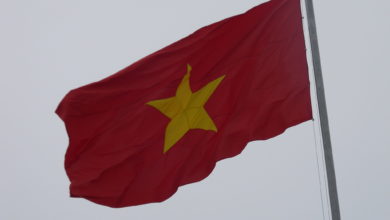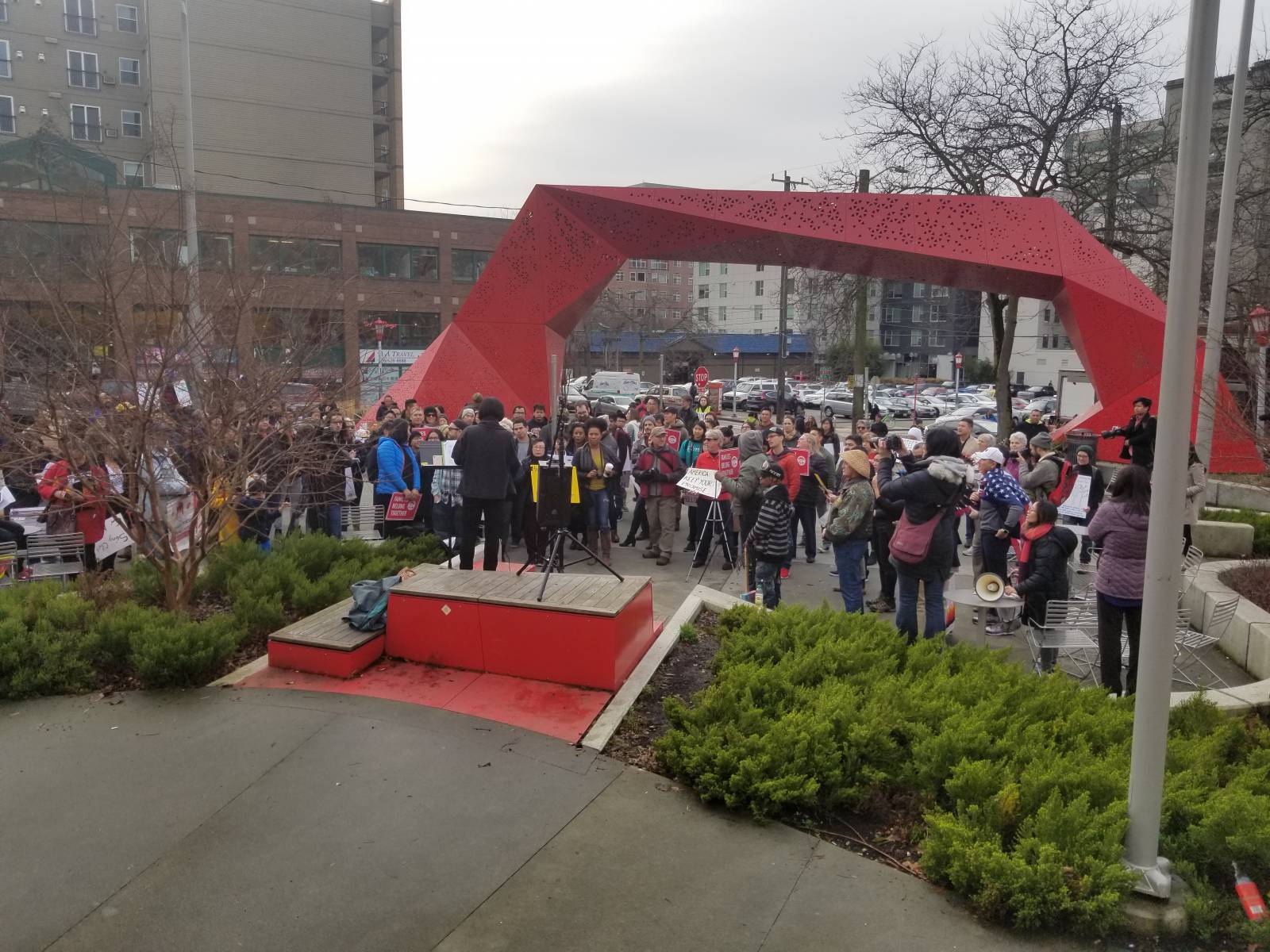The following article was first published on Aug. 26 in Cuba’s Granma Daily newspaper as “The legendary General Vo Nguyen Giap has many nicknames: ‘the Red Napoleon,’ ‘Volcano Under the Snow.’” Translation for Liberation News by Gloria La Riva.
Yesterday, the legendary General Vo Nguyen Giap, great friend of Cuba, turned 100 years old. He is one of the most relevant figures of Vietnam’s history.
“Ge Luo” means volcano under the snow. That is how his compatriots named this extraordinary man, who defeated the Japanese, later, the French in Dien Bien Phu and decades later he made the Americans flee Saigon, to complete the reunification of Vietnam.
His life is inextricably linked with the struggle of national liberation, with the history of the formation, growth and development of the Vietnamese People’s Army, and whose victories caused the very French to nickname him “The Red Napoleon.”
Vo Nguyen Giap was one of many children of peasants who became a known personality thanks to socialism, although there was much personal sacrifice. In 1926, he became a member of clandestine student organizations in the struggle. In 1933, he joined the Communist Party of Indochina and very quickly joined the inner circle of Ho Chi Minh, with whom he was a personal friend.
At the end of 1941, Giap moved to the mountains of Vietnam to create the first guerrilla groups. There he established an alliance with Chu Van Tan, leader of the Tho, a guerrilla group of a national minority in northeast Vietnam. Around Christmas in 1944, he captured a French military post, after having formed the first battalions of his armed forces.
In mid-1945, he already had 10,000 men under his command and was able to go on the offensive against the Japanese, who had invaded the country.
The French police detained his wife and sister-in-law, using them as hostages to pressure Giap and try to force him to surrender. The repression was ferocious: his sister-in-law was guillotined and his wife sentenced to life in prison. She died in prison after three years due to brutal torture. The French torturers also assassinated his new-born son, his father, two sisters and other family members.
General Giap defeated the French during the battle of Dien Bien Phu, which was the first great victory of a people in colonized and feudal conditions, with a primitive agricultural economy, against an experienced imperialist army sustained by an aggressive and modern war industry. The best-known French generals (Leclerc, De Lattre de Tasigny, Juin, Ely, Sulan, Naverre) were defeated one after the other against troops made up of poor peasants, but who were determined to struggle to the end for their country and for socialism. Vietnam became divided and Giap was named Minister of Defense of the new government of North Vietnam, which struggled to build a new socialist society, while it continued the people’s war.
As commander of the new people’s army, Giap directed the struggle in the Vietnam War against the new U.S. invaders in the country’s south, which once again began under the mode of a guerrilla war. The first U.S. soldiers died in Vietnam on July 8, 1959, when the NLF fighters attacked a military base in Bien Hoa, northeast of Saigon.
Four U.S. presidents fought in succession against Vietnam, leaving behind the blood of 57,690 U.S. mercenaries. In 1975, the country was reunified, when a tank of the revolutionary army smashed through the protective barricades of the U.S. embassy, while the last imperialists fled hurriedly in a helicopter from the roof of the building.
General Giap was not only a master in the art of leading the revolutionary war, he also wrote about it in several books with important analyses. His famous work, “Peoples War, Peoples Army,” is a manual of guerrilla war based on his own experiences. In it he establishes three basic foundations which a people’s army must base itself to be victorious in the struggle against imperialism: leadership, organization and strategy. In other words, the leadership of the Communist Party, an ironclad military discipline, and a political line consistent with the economic, social and political conditions of the country.
He defined people’s war as “a war of combat for the people and by the people, while guerrilla war is simply a method of combat. The people’s war is a more general concept. It is a synthesized concept. It is at the same time a military, economic and political war.” A people’s war is not only carried out by an army—no matter how popular it is. Rather, it is carried out by all the people, because it is impossible for a revolutionary army by itself to achieve victory against reaction. All the people have to participate and help in the struggle, which of necessity has to be prolonged.
As a good warrior, Giap knew that the success of victory—when there is such a great disparity in forces—is based on initiative, in audacity and surprise, which requires that the revolutionary army be continuously mobilized. He stood out as a logistical genius, capable of continuously mobilizing important troop contingents, following the principles of a war of movements. He accomplished that against the French colonizers in 1961, infiltrating a whole army through the enemy lines in the Mekong River Delta, and again advancing the Tet Offensive in 1968 against the Americans, when he situated thousands of men and tons of supplies for a simultaneous attack against 35 strategic centers in the south.
Both partisans and adversaries consider Vo Nguyen Giap as one of the great military strategists of history.
Marcel Bigeard, the most decorated general of the French army, who was his prisoner, has said of the Vietnamese military chief: “Giap successfully commanded his troops during more than 30 years. This constitutes an unprecedented prowess. … He took lessons from his errors and never repeated them.”
For his part, William Westmoreland, commander in chief of the U.S. army in Vietnam and adversary of Giap, declared, “The qualities that make a great military leader, is the ability to make decisions, moral strength, the ability to concentrate and the intelligence that unifies all those qualities. Giap possesses them all.”
Read the article below for in depth analysis from the Party for Socialism and Liberation about Vietnam’s heroic struggle against imperialism and for socialism, and Gen. Giap’s central role as a revolutionary leader.




